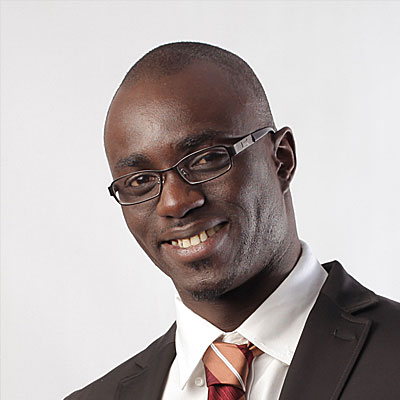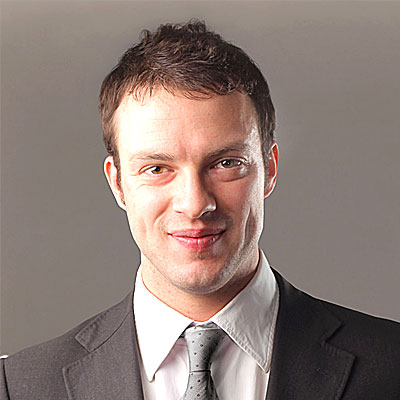The Reality Of The Word Among Us
 June 10, 2019
June 10, 2019
Referring to Jesus, the only-Begotten Son of God, the Saviour of the world, St. John states categorically that “…the Word was made flesh, and dwelt among us….” (John 1:14). Prophet Isaiah describes the same Jesus, the Son of God, as “Wonder, Counsellor, Mighty God, Everlasting Father, Prince of Peace (Is. 9:6). If it is true that the Person predicated of the qualities mentioned above dwells among us, why do we experience these present predicaments? I make bold to say that Jesus, the Son of God, is present among us, and he is always present in the world. He says, “…I am with you always until the end of this world” (Mt. 28:20).
Seven Hundred years before the birth of Jesus, Prophet Isaiah had prophesied that a virgin would conceive and bear a son who would be called “Immanuel” (Is. 7:14). The Hebrew word “Immanuel” means “God with us”. In his book entitled, All About Christmas: A Historico- Biblical Study of the Birth of the Messiah (2009, p. 169), Fr. Sebastian Kizhakkeyil describes the scenario like this:
‘In the face of the real danger of two northern enemies of Judah attacking Jerusalem, Prophet Isaiah asked King Ahaz and the people of Judah not to panic but to believe in the promises of Yahweh. King Ahaz saw that it was humanly impossible for him to stop the invasion of Judah by the coalition forces of Syria and Ephraim. He felt unable to defend his country and people. The people were greatly frightened. During this crisis Prophet Isaiah recalled the two promises of Yahweh to King David and…Jerusalem. The prophet reassured the king that it was enough to trust in those promises of Yahweh and then Yahweh would protect his kingdom and his people.
‘When the king was unable to trust the prophetic reassurance, Isaiah uttered the historic prophecy that has come to be known thereafter as the “Immanuel prophecy”. The prophet gave the king a sign of reassurance that Yahweh would defend and protect Jerusalem and Judah. The sign was that a young woman would conceive and bear a son who would be called “Immanuel”. The prophet meant that the birth of a son as he predicted would give the message that God was with them. If God was with the people, no force in the world would be able to attack and conquer them. The Isaiah prophecy had an immediate fulfilment and the conflict of 734-732BC was resolved as Isaiah had prophesied even though the king had rejected the prophetic words. The fuller meaning of the prophecy was revealed in a manger in Bethlehem 700 years later’ when Christ was born.
The point being stressed here is that God is with us always. That is the implication of Christmas celebration. However, the present sorrows abound with us because we have refused to do things in the right way. What is the right way? The right way is the way of God; the way of Truth, the way of Obedience, the way of True Service from our leaders to the followers. Using himself as an example, Jesus remarks that the true leader is the one who serves in love, because leadership is for service. He says, “….the Son of man has come not to be served, but to serve, and to give his life as a ransom for many” (Mk. 10:45). Consequently, he warns leaders against misuse of power and authority explaining that it is the pagans who do so (Mk. 10:42). Yes! The right way is the way of humility (Phil. 2:9); the way of promoting the common good; the way of promoting the welfare and wellbeing of one another; the way of righteousness; the way of justice, love and peace. Indeed, the list is endless!
During his first Visit to Nigeria in 1982, Pope St. John Paul II delivered series of speeches to different groups. One could extract from these speeches what James Okoye refers to as “the 26 evils of Nigeria”. These he categorized into four, namely, economic, social, political and moral evils. Economic evils include bribery, corruption, embezzlement of public and company funds; economic sabotage like fuel bunkering; persistent unemployment; over-concern with money making. Social evils refer to such attitudes like domination over the weak; callousness towards the poor, the friendless and the handicapped; extravagant and unproductive spending; parade of wealth; nepotism; denial of rights of the poor; lack of discipline; seeking to have more rather than “be more”; increase in various degrees of selfishness; malnutrition; illiteracy; reduced life expectancy. Political evils consist of tribalism and ethnicity; political antagonism; discrimination because of a person’s ethnic origin, religion, or sex; violence; political bureaucracy or red-tape; and unwarranted administrative bottlenecks, among several others. Moral evils concern such unethical conducts like abortion; contraception; divorce; dishonesty, sexual permissiveness; promiscuous sexual prostitution and commercialization even across borders, etc.(Nicholas N. Obi, This Odd World: Spotlighting Nigeria’s Blindspots, Lagos: Joe en Jude, 1987, pp. 24-25).
Without any categorization, I add the following evils that have ravaged and are still ravaging our country; they include the Boko Haram Insurgency, Insecurity, Kidnapping, Armed Robbery, Pen Robbery, Bribery and Corruption, Unemployment, Negative/Harsh Policies of the Government; Misapplication, Misappropriation and Mismanagement of Resources; Extravagant Spending, sometimes on “White-Elephant Projects; Sycophancy; Insincerity/Dishonesty; Greed or Avarice; Fraudulent Deals, e.g. the “Ghost Worker” Palaver, which has given birth to unending “Screening Exercises”, and lack of payment of salaries for several months; Political “godfatherism”; Religious Bigotry; Misplacement of Priorities; Laziness/Idleness; Lawlessness; Recklessness; Economic Recession, which results from negative policies of the government, characteristic of visionless leaders, and the likes.
In his book, The Religious Life Within a Christian Vision of Reality (2007, pp. 183-184), Joseph Mattam (SJ) acknowledges the fact that most sufferings on earth are caused by humans. To quote him verbatim:
Most of the evils, like slavery, wars, colonialism, casteism, slums, illiteracy, displacement of peoples from their own habitat, various forms of conflicts and their consequences, hunger for the millions, are all caused by humans. We may safely say that at least 98% of sufferings are caused by humans themselves. Even the cases like children born handicapped, with defective limbs, etc. are due to environmental pollution, exposure of the mother to radiation, adulterated food and medicines, alcohol, drugs, tensions, fear, anxiety, etc. What humans, their actions and attitudes cause are by far the greatest amount of suffering and hence we need not look for any other explanation—obviously, humans will have to solve them. Human error is a major factor in most of the accidents which kill thousands of people each year. Slums, poverty, and malnourishment of millions are mostly effects of the human-made economic and social systems and structures that impoverish the poor and fatten the rich.
He notes that even some natural calamities have remote human causality. Floods, for instance, could be avoided by dredging of rivers and building strong dams. A drainage system is a water path through which water flows. Regrettably, stubborn people fill such drainage with refuse dumps; this can also cause flooding. Motorists and cyclists do not obey traffic rules, hence, there are accidents; state and federal governments refuse to pay workers their entitlements for months and years; hence, there are strike actions. Who is to blame for all these? Certainly, it is we human beings who have rejected the Kingship of Jesus Christ over us. Of course, we know what is good for us; unfortunately, we deliberately reject the good because of our selfish interests.
What should be our response to the present predicaments? Joseph Mattam again answers that all sufferings, whether man-made or natural, are challenges to us to be more loving, creative and free. He explains further that, “This earth is our ‘homework’; we have to better it, make it a place good for all. We may make it a paradise for all, or only for a few, and a hell for most—it is all up to us humans. All progress in the field of medicine, for example, has happened because someone…responded to a suffering situation creatively and with love” (pp. 185-186).
If you ask me, “Why does Jesus, who dwells among us, not intervene to correct these human errors and put an end to sufferings?” I will retort that, “It is because it is not in the character of God to force human beings to obey his commands.” God has endowed every human being with freewill. He has given human beings the freedom to either behave well or misbehave, with each kind of behaviour having its reward or repercussion. Among the twenty six evils of Nigeria enumerated by James Okoye above, I like to single out bad leadership as a major cause of our present predicaments which make us think that Jesus is not present in our midst. The following story will clarify this issue of bad leadership and how it can be resolved.
There was a wise man named Confucius who lived Four Hundred years before the birth of Christ. The lifestyle of this man was admired by all who came in contact with him; indeed, some of them became his disciples. One day, his wisdom was tested. The story goes like this:
Confucius was sitting under an oak tree in the cool of the day, thinking. Then came the sound of footsteps. Upon looking up, he saw his followers standing round him, looking angry. When he asked what the whole trouble with them was, one of them stepped forward and said, “Master, the society is in total chaos. Nothing works right anymore. Man is in absolute state of anarchy, of disorderliness, of meaninglessness, of foolishness, of selfishness, of lawlessness, of laziness, of hopelessness. Yes, man has become a war monger, a sex monger, a money monger! (And I add, a power monger, a beast unto his fellow man, a murderer!) Please, wise master, help us, redeem us. What shall we do? Answer us!”
Confucius answered calmly and with certitude, saying, “The solution is simple—it lies in the rectification of names. When the leader is truly leader, when the lawyer is truly lawyer, when the doctor is truly doctor, when the soldier is truly soldier, when the teacher is truly teacher, when the student is truly student, when the policeman is truly policeman, when the husband is truly husband, and the wife is truly wife, and the child truly child…then, and only then, shall society be restored (Nicholas Obi, already quoted, pp. 20-21).
I have no doubt that the scenario described above fits perfectly into the Nigerian context. Is the entire country not in a state of anarchy, chaos, and disorder? Is the whole country not thrown into confusion? When basic salaries and allowances are not paid for months, even for years; when the basic social amenities are lacking; when government institutions are incessantly on strike—what expressions can be used to describe the experience of the citizenry besides the words “sorrowful”, “predicaments”, “hopelessness”, and “helplessness”?
All that has been said is that the present sorrows and predicaments, which perhaps make some people to doubt God’s existence, are all man-made. Thus, man-made problems should not make us negate the fact that Christ is with us. In fact, he is the one comforting the oppressed in their sorrows! Without his intervention, we would all perish! Jesus has no other reason for coming into this world except to bring us abundant life (John 10:10). Let us abandon ourselves totally to Jesus, and he will take care of us at this Christmas and beyond.
By Rev. Fr. Mark Ajiga
 Guy Wilkins
Guy Wilkins Larry Reed
Larry Reed Roxanne Holland
Roxanne Holland Bridget Kennedy
Bridget Kennedy Sally Mendoza
Sally Mendoza